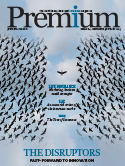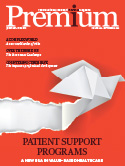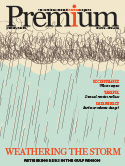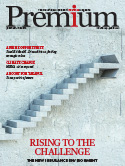Growth prospects for takaful still buoyed: Moody’s

Driven by large populations and relatively low insurance penetration, growth prospects for takaful remain strong in the GCC, Africa and Southeast Asia, according to a report by Moody’s Investor Services (Moody’s).
Despite the economic downturn in many of these markets which has been exacerbated by the coronavirus pandemic, Moody’s expects takaful premiums to keep growing moderately in the next two to three years propelled by higher demand, the continued digitalisation of insurers’ processes and the conducive regulatory improvements.
In the GCC region, the largest market for Shari’ah-compliant insurance, takaful insurers’ will be supported by the widening of compulsory medical in Oman, Saudi Arabia and Kuwait, and by similar measures in motor in Saudi Arabia. Moody’s expects these measures to be particularly beneficial for takaful operators as these players focus on retails lines of business and are therefore more focused on health and motor insurance than some of their competitors who are also active in commercial lines. Similarly, expansion of compulsory health insurance coverage will drive growth in Southeast Asia and in Africa. For example in Malaysia health premiums had already grown by 25 percent in 2019 thanks to the National Health Protection Scheme, while Egypt continues its phased implementation of compulsory health cover nationwide.
Growth of takaful insurance is also supported by changes in regulation, which for example, ease the licensing process for takaful operators. In addition, the sector harnessed the increased demand thanks to continued digitalisation efforts. The need for digitalisation has been accelerated by the pandemic, as digital channels became the main distribution channel during lockdowns. Customers have
familiarised with digital processes and insurers’ platforms and their propensity remains not to visit physical premises. Insurers’ ability to conduct insurance transactions digitally will help takaful insurers to reach out to new customers.
The ratings agency expects takaful operators’ capitalisation to remain strong and become more sophisticated, as risk-based capital measures are introduced and implemented. Implementation of such economic capital regimes, as seen in Europe and China, is likely to increase the sophistication of the sector, leading to an improvement in its risk management, capital adequacy, underwriting and reserving. This overtime improvement in takaful operators sophistication is expected to improve and stabilise their profitability despite any short-term compliance and operational hurdles that the regulatory changes may pose.
Read more:





































